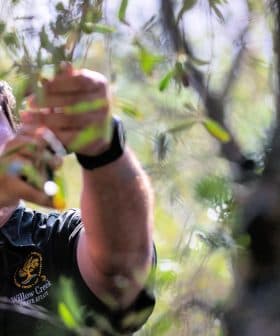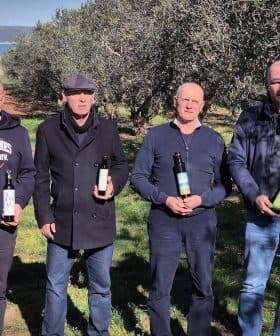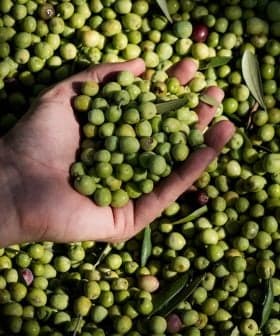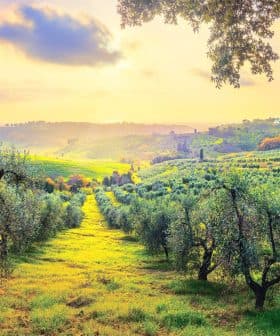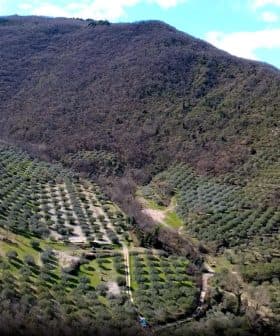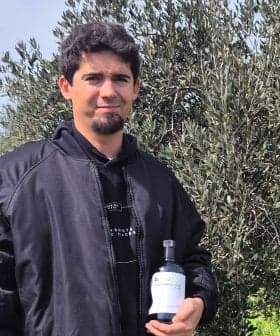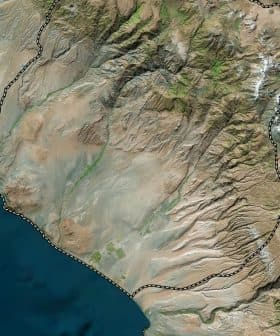The Changing Face of Alentejo's Olive Oil
The Alqueva dam may have thrown a lifeline to some of Alentejo's traditional producers, but nearly 20 years later, it has also brought along new challenges that may prove to be insurmountable.
 Alqueva Dam (AP)
Alqueva Dam (AP) The completion of the Alqueva dam has transformed the olive oil industry in Alentejo, Portugal, making it the most important region for olive oil production in the country. While the dam has led to increased quality and competitiveness, traditional producers are struggling to compete with large-scale Spanish companies, leading to concerns about the future of the local olive oil heritage.
Since its completion nearly two decades ago, the Alqueva dam has changed the face of Alentejo’s agricultural scene.
The southern Portuguese region, which stretches from the Atlantic Ocean to the Spanish border and comprises nearly one-quarter of the country’s landmass, has long been home to Portugal’s traditional olive oil producers.
It’s our heritage. If the Portuguese government doesn’t do anything, it will disappear, I’m sure.
Here, in a landscape defined by rolling hills, modest scrublands and small groves of native trees, the local olive oil industry has hit an inflection point.
“Since the Alqueva dam was built the olive oil sector in Portugal has taken a new dimension,” Manuel Norte Santo, the sales manager at the Industrial and Commerce Society of Olive Oil (SICA, as it is known by its Portuguese initials), told Olive Oil Times.
“We didn’t follow the evolution of Spain, Italy and Greece, because we had no production capacity and our olive oil was more expensive because it came all from traditional olive groves,” he added.
Before the dam’s construction, Alentejo was prone to both drought and wildfire. Few large-scale farms were operating in the region. Most olive oil production came from family farms, which only grow local varieties, such as Galega, Cordovil and Carrasquenha.
“Before the Alqueva dam was constructed, olive oil production was done in cooperatives and there were three or four cooperatives that bottled the olive oil,” Ana Carrilho, the olive oil manager at Esporão Azeites and director of the Center for the Study and Promotion of Alentejo Olive Oils (CEPAAL), told Olive Oil Times.
She has been producing olive oil in the region since 1997 and has seen exactly how the Alqueva dam has transformed Alentejo.
“These olive oils were then sold in some supermarkets or in the store of the mill,” she added. “The branding was not important for them and they weren’t very productive. Every year they produced different quantities because there was no irrigation, so the effect of the on-year and off-year phenomenon was very prevalent.”
This all began to change from 2000 to 2003, when the Alqueva dam was built and 240,000 acres, an area the size of San Diego, were flooded. By 2020, the reservoir will be expanded by an additional 180,000 acres.
“Now, with the Alqueva dam, Alentejo has become the most important olive oil region of the country,” Norte Santo said. “It allowed many more intensive and super-intensive olive groves to be planted than before and made them super effective because the water now is very cheap.”
Alentejo is now home to 85 percent of Portugal’s olive groves and responsible for 77 percent of all the country’s olive oil production. Part of the drive behind the region’s meteoric rise came in 2011 when a Portuguese government initiative was launched to boost economic growth after the 2008 financial crisis.
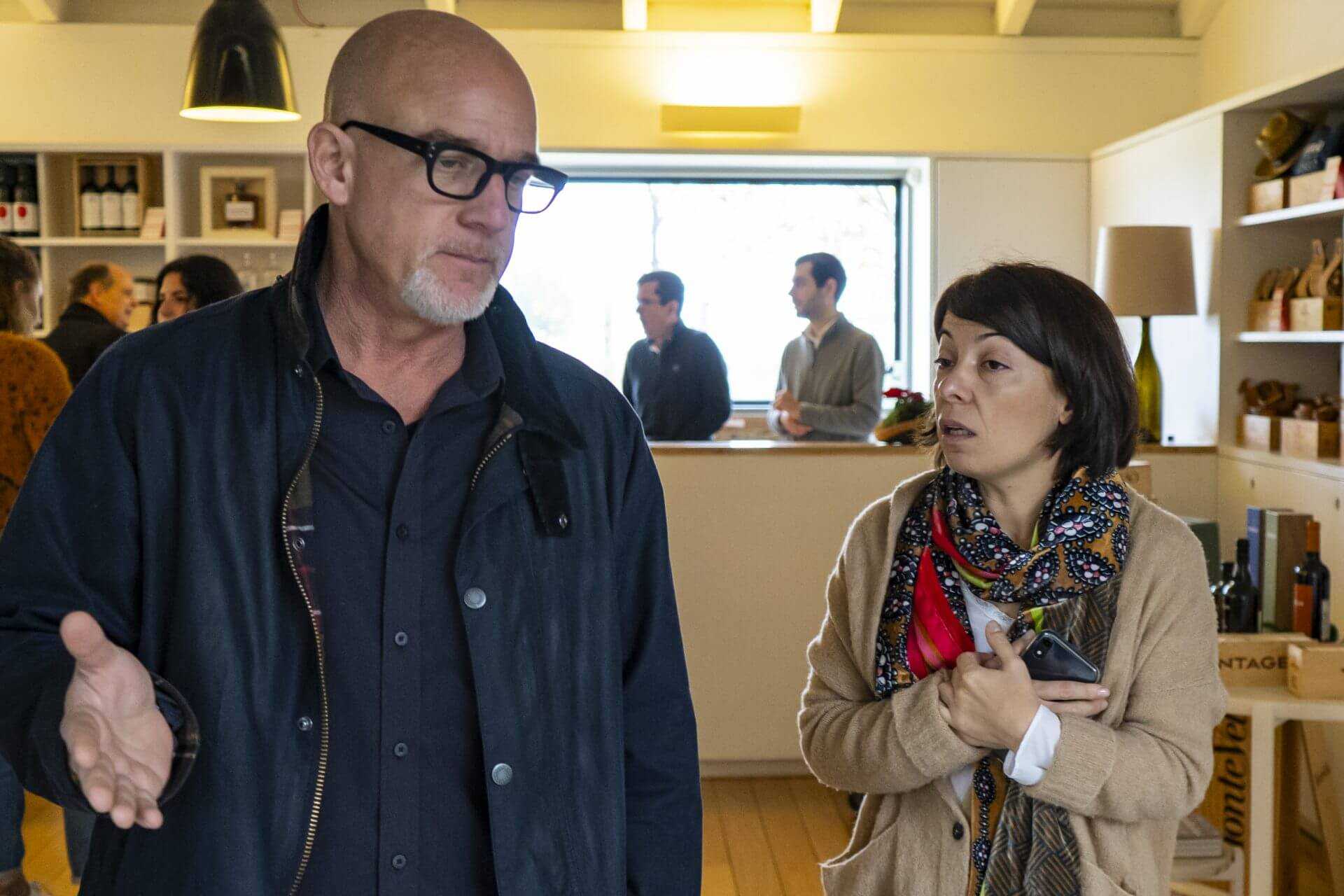
Olive Oil Times editor-in-chief Curtis Cord with Ana Carrilho at Esporão
As an incentive for investment in the newly viable agricultural region, the government provided cheap loans for investors willing to spend €500,000 ($695,000) and create jobs. This initially brought some of the giant Spanish companies, many enticed by cheap land, easy capital and abundant water.
“One of the problems with this investment for Portuguese producers and Portuguese investors, was that many big Spanish companies turned to Alentejo and started to plant their own olives fields and build their own facilities there,” Norte Santo said.
“Spanish investors make up half of Alentejo’s production,” he added. “They were the main beneficiaries of this Portuguese investment and in the process, these big Spanish companies have created unfair competition for small Portuguese producers.”
These companies produce bulk olive oil made mostly from Arbequina and Hojiblanca and multi-variety blends produced using other imported oils.
This large-scale production has hurt traditional olive oil producers by pushing their sales prices down, while the government has not provided any financial aid, so their production costs have remained the same.
“Of course they can’t produce at the same price as the big producers because they are high-intensive and highly productive olive groves,” Carrilho said. “Older producers sometimes have fewer than 250 trees per acre compared to the intensive groves that have almost 1,000 trees per acre.”
This has led to many traditional farmers abandoning or selling their land to these super-intensive producers.
“Imagine, how can they earn money if they don’t sell at the highest price,” Carrilho said. “Olive oil is still a commodity and they don’t have a way to sell these olive oil bottles, so they have to sell for the best price and the best price is not enough for them.”
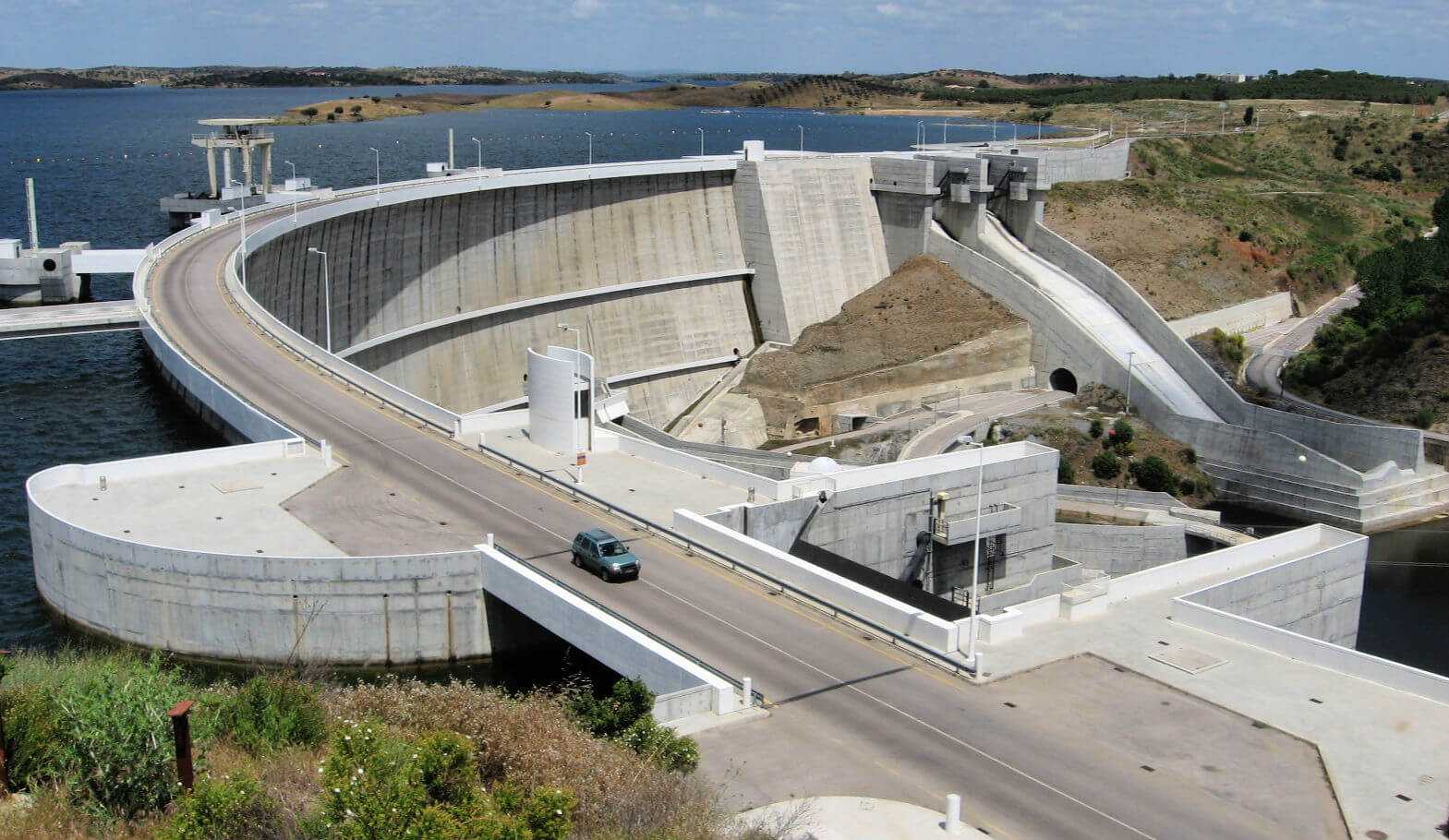
Alqueva Dam
For its part, Esporão Azeites buys only local olive varieties from local farmers.
“We have contracts with small producers to buy their olives to make our own olive oil,” Carrilho said. “Of course we have to pay more, but that’s the way we do things. We want to preserve our own varieties and we want our olive oils to be different and to show what we can do in Alentejo.”
Esporão Azeites bottles more than one million liters of olive oil annually and invests heavily in their branding to ensure their oils stand out on the shelves. This has helped make the company Portugal’s leading seller of premium olive oils, but they are far from the norm.
Part of the problem for traditional producers is that Portuguese consumers mainly look at olive oil prices.
“People still focus on the price and the biggest brands,” Carrilho said. “For example, the Sovena brands, they are all over the supermarket shelves with a very competitive price. The shelves are full of their two brands and there is next to no space for traditional oil and when there is, the price differentiation is huge, sometimes double or more.”
Despite the challenges for traditional producers that have been brought to the region by the dam, without it Portuguese olive oil quality would not have increased either.
“At the end of the day, it was a very good thing because people are more competitive and the quality has gone up now as a result,” Carrilho said. “Olive oil production was done in the traditional way before and, after the dam came, people became more interested in planting in a different way and planting more as well as building new, more modern mills that have milled oil with better quality.”
However, Carrilho and many other local producers are worried that despite the increase in their overall quality, they will soon be out-competed by the super-intensive producers. She said that even more local farms would be driven away unless the Portuguese government acted soon.
“Well it’s our heritage,” she said. “If the Portuguese government doesn’t do anything, it will disappear, I’m sure.”
Share this article


